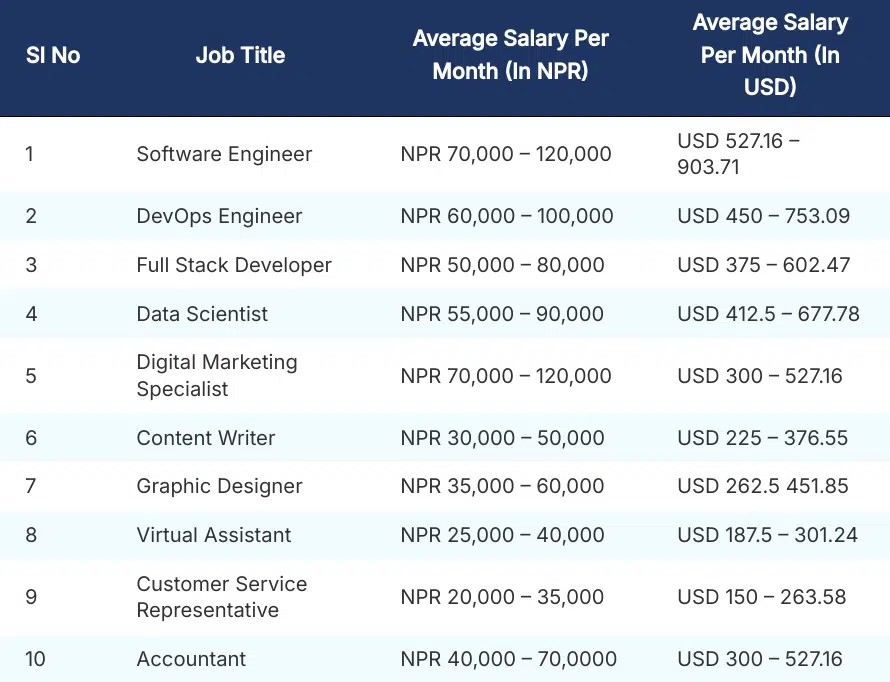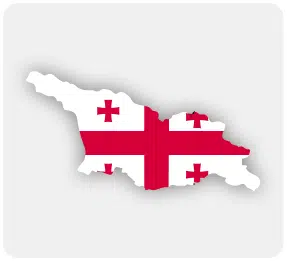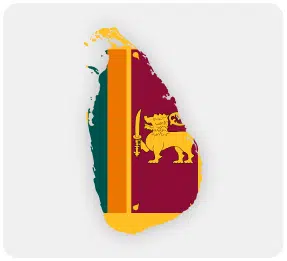Hire Employees in Nepal
Nepal, nestled in the heart of the Himalayas, presents a burgeoning landscape for global businesses seeking remote talent. With a population that combines rich cultural diversity with a burgeoning workforce, Nepal is emerging as an attractive destination for hiring remote employees. Boasting a population of approximately 30 million, the country offers a growing pool of skilled professionals, particularly in sectors such as IT, engineering, and customer service. The proficiency of Nepali professionals in English, the global business language, adds to the appeal for international collaboration. Nepal’s remote hiring landscape is witnessing a positive trend, with a rising number of professionals embracing remote work opportunities. This, combined with the nation’s work flexibility and cultural affability, positions Nepal as a promising hub for global businesses to tap into a talented and adaptable workforce, contributing to the strengthening of international operations.
Table of Contents

Overview of Nepal
Capital: Kathmandu
Population: 30.66 Million (49th in world population)
Language: Nepali
Currency: Nepalese rupee (Rs, रू) (NPR)
Payroll frequency: Monthly
Timezone: UTC+05:45
Cost of living index: 195th out of 197
GDP: $1,352
Remote hiring and work trends in Nepal
1. Rising talent pool
- Young and educated workforce: Nepal boasts a young population with a 66% literacy rate and a growing number of graduates in IT, business, and engineering. This creates a readily available pool of talent for remote roles.
- English fluency: English proficiency is widespread, making communication with international teams seamless.
- Tech-savvy: The IT sector is booming, fueled by a young workforce eager to embrace technology. This translates to a skilled pool of developers, programmers, and digital marketing professionals.Leveraging EOR Nepal services can help businesses tap into this promising talent pool efficiently.
2. Cost-effectiveness
- Lower salaries: Compared to other countries, Nepal offers significantly lower salary costs. The minimum wage is around NPR 15,000 per month, making it an attractive option for budget-conscious companies.
- Reduced overhead: By hiring remote workers through EOR Nepal, companies can avoid the expenses associated with office space and equipment.
3. Shifting trends
- Rise of the gig economy: Platforms like Upwork and Fiverr are seeing increasing engagement from Nepalese freelancers, offering companies access to talent for short-term projects or specific skill sets.
- Growth of tech startups: The IT sector is witnessing a surge in startups, many of which are offering remote work opportunities. Collaborating with these startups through EOR Nepal can create exciting possibilities for innovation.
- Government support: The Nepalese government recognizes the potential of remote work and is actively taking steps to create a conducive environment for foreign companies to hire Nepali talent. EOR Nepal simplifies this process by ensuring compliance with local regulations and streamlined hiring practices.
4. Interesting statistics
- A 2023 survey by Kathmandu University found that 48% of Nepalese professionals are open to remote work opportunities.
- The IT sector is expected to contribute 10% to Nepal’s GDP by 2025, further boosting the availability of tech talent.
- Upwork data shows Nepal as one of the fastest-growing freelancer markets globally, with a 30% increase in freelancer registrations in 2023.
Top 10 high-paying jobs and salary data in Nepal

Employment laws in Nepal- Important considerations
- Probation period
- Minimum wage
- Working hours
- Leave policies
- Termination of employment
Employee probation period in Nepal
The probation period is a crucial phase for both employers and employees in Nepal. It allows employers to assess an employee’s suitability for the role while giving the employee time to adjust to the new work environment and demonstrate their skills.
Legal framework
The Labour Act, 2017 (2074): This act stipulates that the maximum probation period in Nepal is six months. While employers are not obligated to set a probation period, if they choose to do so, it must be clearly outlined in the employment contract.
Probation period duration
While six months is the legal limit, the actual duration of the probation period can vary depending on various factors, including:
Job complexity: Higher-level or specialized roles might require a longer period for adequate evaluation.
Company policy: Some companies might have established policies regarding probation periods for different positions.
Mutual agreement: Employers and employees can mutually agree on a shorter or longer period, within the legal limit.
Minimum wage in Nepal: As per latest employment laws and data
Nepal’s minimum wage landscape experienced a significant shift in August 2023, with the government revising the wage structure under the Labor Act, 2017. Here’s a comprehensive overview of the current minimum wage scenario:
General minimum wage:
- Monthly: NPR 17,300 (an increase from NPR 15,000 previously)
- Daily: NPR 562.50 (calculated as 1/30th of the monthly wage)
- Hourly: NPR 75 (calculated as 1/8th of the daily wage)
Sector-specific minimum wage:
- Tea Estate Workers: NPR 13,893 per month (increased from NPR 12,081)
- Other Specific Sectors: May have different minimum wage rates determined by sector agreements or collective bargaining.
Working hours in Nepal
Understanding working hours in Nepal requires navigating the intricate interplay of employment laws and practical realities. Let’s dive into the latest regulations and data to get a clear picture:
Legal framework:
- Nepal’s Labor Act 2074 (2018) sets the standard working hours as 8 per day and 48 per week. This applies to all employees except those under 18, who have a cap of 6 hours per day and 36 hours per week.
- The Act mandates a 30-minute break after every 5 hours of work for adults and every 3 hours for minors.
- Overtime work, exceeding the set limits, requires 150% compensation.
Data-driven insights:
- While the law prescribes a 6-day workweek (Sunday to Friday), the typical pattern in private businesses is 5 days (Sunday to Thursday), with Saturday often serving as a half-day or optional work day.
- Business hours generally fall between 9 am to 5 pm for private sectors and 10 am to 5 pm (summer) or 10 am to 4 pm (winter) for government offices.
- Informal sectors, like agriculture and small businesses, might have more flexible or longer working hours, often dictated by seasonal variations and workload demands.
Leaves and leave policies in Nepal
Employees in Nepal are entitled to a variety of leaves, governed by the Labor Act, 2074 (2018) and subsequent amendments. Understanding these leaves and their associated policies is crucial for both employers and employees to ensure compliance and a harmonious work environment.
Here’s a breakdown of the key leave types and their latest regulations:
1. Annual leave
- Every employee earns 1 day of paid annual leave for every 20 days worked.
- Unused leave can be accumulated up to 90 days at the end of the year.
- Accrued leave beyond 90 days is encashed upon termination.
- Educational institutions with summer and winter holidays may not offer additional annual leave.
2. Sick leave
- Employees are entitled to 12 days of paid sick leave per year, prorated for those working less than a year.
- Leave exceeding 3 consecutive days requires a medical certificate.
- Unused sick leave can be accumulated for up to 45 days and en-cashed if exceeding that limit.
3. Casual leave
- Employees earn 1 day of casual leave for every 20 days worked.
- This leave is for unforeseen personal needs and doesn’t apply to employees in educational institutions with vacation periods.
4. Maternity leave
- Female employees have the right to 14 weeks of maternity leave, including pre- and post-natal periods.
- During this time, they receive full salary and benefits.
5. Paternity leave
Male employees can take up to 15 days of paid paternity leave to care for the newborn.
6. Bereavement leave
Employees receive 13 days of paid leave in case of the death of a close family member.
7. Public holidays
Nepal has 43 official public holidays per year, which are paid leaves for employees.
Termination of employment in Nepal
Terminating employment in Nepal is a nuanced process governed by the Labor Act, of 2017 (2074). Understanding the latest regulations and employee rights is crucial for employers and employees navigating this sensitive situation.
1. Voluntary termination
- An employee can resign by submitting a written notice to the employer.
- The employer must approve the resignation within 15 days and inform the employee accordingly.
- The employee, if applicable, must serve the notice period stipulated in their contract.
- Payment of accrued salary and benefits is mandatory upon resignation.
2. Termination by employer
Employers can terminate an employee based on justifiable reasons outlined in the Labor Act. These include
- Misconduct or violation of company rules.
- Poor performance after due warning.
- Redundancy due to business restructuring.
- Illness or incapacity rendering the employee unfit for work.
- Mutual agreement.
Employers must follow a proper termination procedure, including issuing a show-cause notice and providing an opportunity for the employee to defend themselves.
3. Notice period
During the probation period (maximum 6 months), the employer can terminate employment with 7 days’ written notice. After the probation period, the notice period depends on the length of service:
- Less than 1 year: 15 days’ notice
- 1-3 years: 30 days’ notice
- 3-5 years: 45 days’ notice
- Over 5 years: 60 days’ notice
4. Severance pay
- Upon termination, the employee is entitled to severance pay calculated as one month’s salary for each year of completed service.
- Additional compensation may be awarded in cases of unfair dismissal or termination without due process.
Why do companies hire from Nepal?
1. Talented workforce
Nepal boasts a young, educated population with English fluency and strong technical skills. The literacy rate is 66%, with a growing pool of graduates in IT, business, and engineering.
2. Cost-effectiveness
Compared to other developed countries, Nepal offers significantly lower salary costs. The minimum wage is around NPR 15,000 per month, making it an attractive option for budget-conscious companies.
3. Cultural fit
Nepalese culture emphasizes respect, hard work, and collaboration, making for a dedicated and reliable workforce. They are known for their friendly demeanor and positive attitude.
3 Best ways to hire employees in Nepal
To effectively hire employees in Nepal, businesses can explore three distinct strategies tailored to their unique needs and objectives. Similar approaches can also be applied when businesses want to hire employees in Sri Lanka, depending on regional laws and hiring models.
1. Establish a local entity in Nepal
Creating a legal presence for your business within Nepal provides a robust foundation for operations, talent acquisition, and market engagement. This method involves navigating local regulations and building strong relationships with clients and partners. Establishing an entity is particularly beneficial for businesses with long-term growth plans in Nepal. However, for those seeking short-term projects or small virtual teams without extensive future commitments, this strategy may not be the most practical.
2. Partner with an Employer of Record in Nepal
Collaborating with an Employer of Record (EOR) in Nepal offers a strategic solution, simplifying market entry and accelerating the hiring process. It also provides transparency around EOR Price. An EOR acts as a local employer, managing payroll, benefits, compliance, and administrative tasks. This approach minimizes legal complexities and allows businesses to swiftly establish a compliant presence while focusing on core operations. Partnering with an EOR like Global Squirrels in Nepal enables efficient access to local talent and ensures a streamlined employment process.
3. Engage independent contractors in Nepal
Opting for independent contractors in Nepal provides a flexible and efficient means to access specialized skills and services. This approach allows businesses to leverage professional expertise without the long-term commitments associated with traditional employment. Independent contractors are particularly valuable for short-term projects or specific tasks, providing a dynamic solution for optimizing resource allocation. However, companies must remain vigilant about the risk of misclassifying contractors, as this can lead to issues such as backpay, penalties, legal fines, damage to reputation, and other consequential challenges.
Cost to hire employees in Nepal
The expenses associated with hiring in Nepal extend beyond the employee’s salary and bonuses, encompassing a range of direct and indirect costs that contribute to the overall hiring expenditure. These costs may include (but are not limited to):
- Registration fees for establishing a Nepali entity
- Costs associated with employment agencies in the case of outsourcing
- Expenditures for organizing or participating in hiring events
- Advertising costs for job postings
- Travel expenses for hiring managers visiting Nepal
- Compensation for recruiters in terms of salary and time
- Salary and bonus/incentive for the hired candidate
- Relocation fees for new employees
- Charges for third-party background verification and reference checks
Global Squirrels: Enabling companies in the search for talent in Nepal
Embark on an exciting collaboration with Global Squirrels to transform your employee recruitment experience in Nepal. Our cutting-edge AI-driven platform facilitates effortless hiring with top-notch talent, simplifying your global remote hiring process.
Are you ready to embark on this transformative hiring approach in Nepal?
Let’s get started, sign up now, and together explore a realm of boundless possibilities! For any questions and clarifications, schedule a demo with our expert team!












